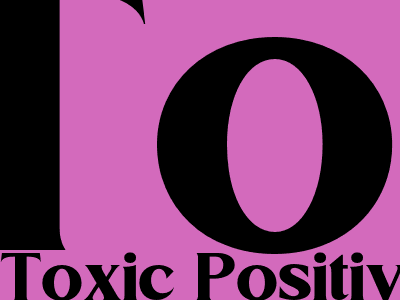Toxic Positivity: The Dark Side of Positive Thinking
What is Toxic Positivity?
Toxic positivity is the excessive and often inauthentic expression of a positive attitude, regardless of the actual circumstances. It involves suppressing or denying negative emotions, promoting an unrealistic or unattainable ideal of happiness, and pressuring others to conform to this mindset.
Consequences of Toxic Positivity
Emotional Repression:
Toxic positivity can lead to emotional repression, preventing individuals from acknowledging and processing their genuine feelings. This can result in emotional turmoil, anxiety, and depression.
Cognitive Dissonance:
When individuals are forced to maintain a positive attitude despite negative experiences, it can create cognitive dissonance, a state of psychological discomfort that arises from holding contradictory beliefs.
Social Isolation:
Toxic positivity can lead to social isolation as individuals who share negative emotions feel marginalized or unsupported. They may avoid expressing their true feelings, fearing judgment or rejection from others.
Recognizing Toxic Positivity
Unrealistic Expectations:
Toxic positivity often involves promoting an unrealistic or unattainable ideal of happiness, suggesting that negative emotions should be eliminated or ignored.
Suppression of Negative Emotions:
Individuals may feel pressured to suppress or deny their negative emotions, such as sadness, anger, or grief, leading to emotional inauthenticity.
Disregard for Context:
Toxic positivity often disregards the context of negative experiences, failing to acknowledge the validity of negative emotions in certain situations.
Countering Toxic Positivity
Emotional Validation:
It is important to validate and acknowledge all emotions, both positive and negative. Allow yourself and others to experience and express their genuine feelings.
Balanced Perspective:
Maintain a balanced perspective by recognizing that life involves both positive and negative experiences. Embrace both sides of the emotional spectrum.
Seeking Support:
Reach out for support from friends, family, or mental health professionals if you struggle with negative emotions. Sharing your feelings can provide validation and reduce isolation.
Conclusion
Toxic positivity can have detrimental effects on mental health and well-being. By recognizing its signs, countering its influence, and fostering a more balanced and authentic approach to emotions, we can create a healthier and more supportive environment for ourselves and others.

Comments